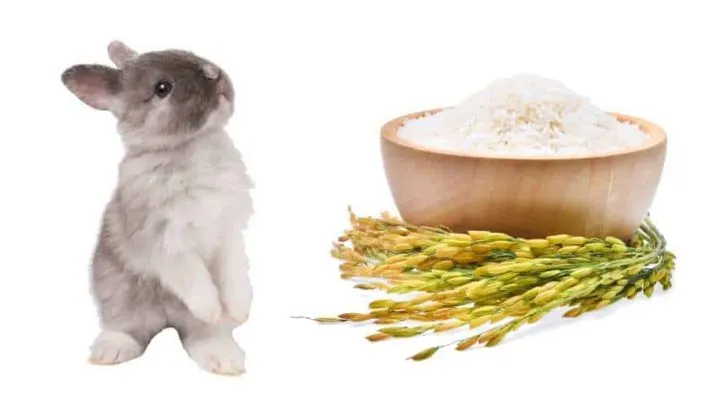All rabbit owners know that their bunny has a sensitive stomach. But just as with most herbivores, a rabbit’s diet is actually pretty simple. However, because of that sensitivity, people tend to get scared anytime their bunny starts eating something unknown.
As a responsible bunny keeper, you know that a rabbit’s diet mainly consists of hay or fresh grass. You also understand that vegetables and fruits are welcomed as a treat.
But there’s one food that we all have in the house – rice. The incredibly popular grain may be a staple of a healthy meal for you, but it could cause your rabbit a great bit of trouble! So we decided to answer the question – Can rabbits eat rice?
Well, it’s kind of complicated, but we’ll figure it out. Buckle up and let’s get this show on the road!
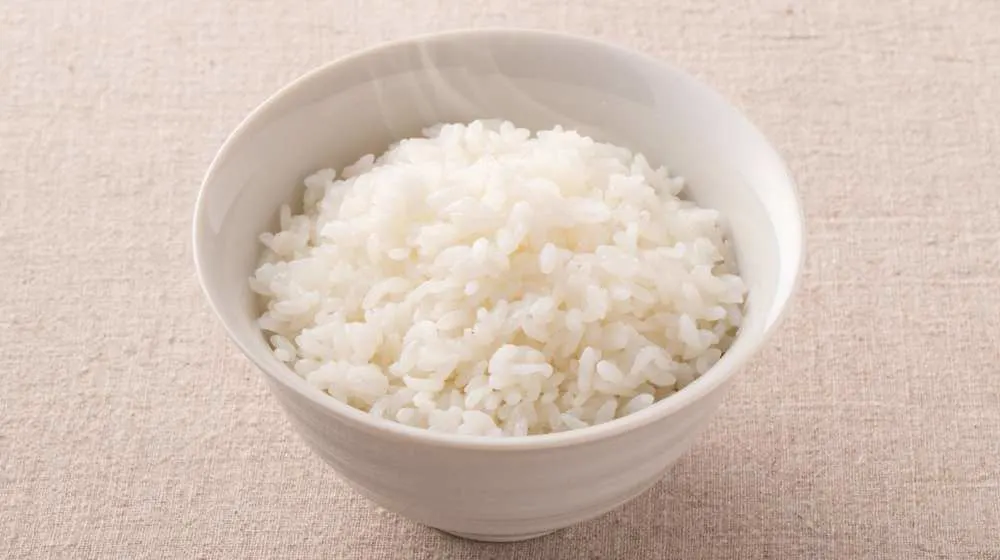
Can Rabbits Eat Rice?
You might have figured it out by now, but no, your rabbit can’ eat rice. In fact, rabbits should not eat rice under any circumstances! That applies to all types of rice! Even though rice is usually safe for animal consumption, in this case – leave it on your plate.
Rice is incorporated in many different meals around the world. Whether it’s eaten as risotto or as rice pudding – it’s definitely a part of most comfort foods. Seasoned or plain, rice also goes well as a side dish to other meals.
For starters, rice is a cereal grain. It’s actually the seed of the grass species Oryza sativa. Around one-half of the world’s population depends on rice! That is why it is considered a staple food. Although your fluffy vegetarian can enjoy numerous types of food, rice isn’t good for them.
So, what’s the problem with feeding your pet rabbit with some rice?
Well, as you know, this versatile grain expands a lot while cooking! Depending on the type, it usually becomes three to four times larger in volume and weight. This is where the problems start.
When rice comes in contact with fluids in your rabbit’s stomach, it’s going to expand rapidly. This can be dangerous for your pet bunny. It can cause him bloating and stomach aches.
Besides the expansion, rice simply isn’t a proper meal for your rabbit. This grain is just too starchy for them. As we mentioned before, bunnies have sensitive stomachs. For a rabbit to be healthy, they should have a balanced diet.
So to achieve this balanced diet, they need only three different food types. That includes a constant supply of hay or grass. Grass and hay should be the central part of their daily meals, with around 85 percent of their diet.
Next, fresh vegetables and greens should take up to 10 percent. Lastly, rabbits should eat high-fiber pellets, which should be approximately 5 percent of their diet.
Nutritional Value
Before we dive deeper into why rice isn’t suitable for rabbits, we should get to know this cereal grain better! The best way for that is to look at its nutritional value.
Here’s the nutritional table for one cup of white, uncooked rice. That is around 185 grams.
| Total carbs | 148 grams |
| Dietary fiber | 4 grams |
| Sugar | 4 grams |
| Protein | 12 grams |
| Iron | 6 % |
As you can see – that’s a whole lot of carbs! Rabbits rely on high-fiber and low carbohydrate foods. Carbs are generally not good for your rabbit, especially if the food lacks fiber as rice does. Besides that, rice provides absolutely no nutrition that can benefit your furry pet.
Fiber is crucial for your rabbit’s diet. It helps them handle sudden increases in insulin. Although brown rice has more fiber, it’s still not a good option for your rabbit. Brown rice contains other components that your rabbit’s stomach can’t digest properly.
Generally speaking, rabbits should not eat any kinds of grains. Grains can lead to many gastrointestinal problems. As a consequence of grain consumption, rabbits can end up with bloating, cramps and pain.
To diminish the drama – your pet isn’t going to die right after consuming rice. Long-term consumption is problematic. However, suppose your pet suffers from gastrointestinal stasis. In that case, there’s a risk that your pet’s functioning gut is going to slow down.
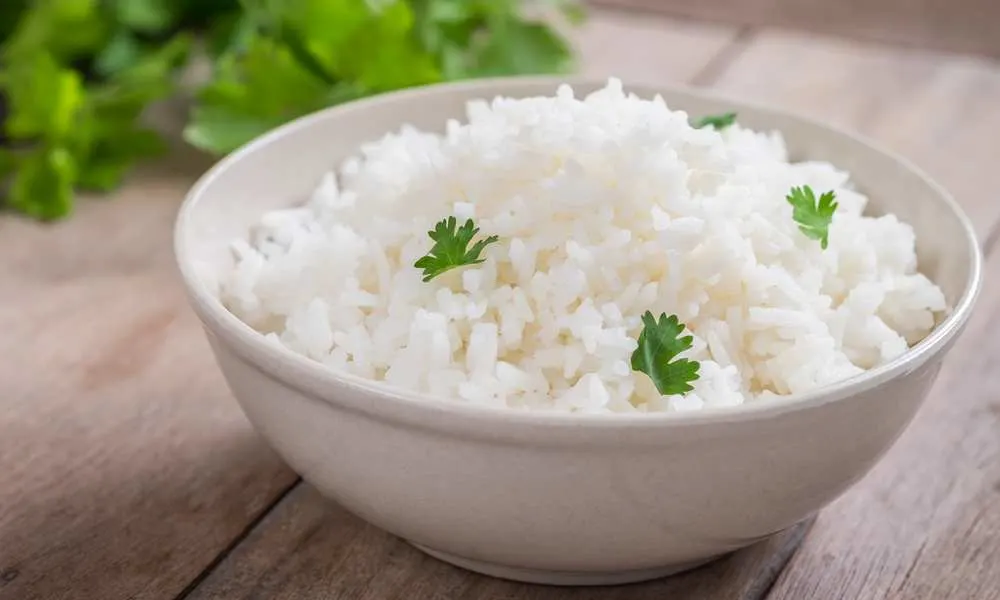
Can Rabbits Eat Prepared Rice?
Sadly, NO – even when cooked, rice is not suitable for your rabbit friend. No matter if it’s cooked, raw, in the shape of rice cakes or noodles, it’s not healthy. Don’t get us wrong – it’s not that it’s poison for them. The issue is that rice can cause some potential health risks in the long run.
Before you let your rabbit roam around your room, clean it up! A few grains of rice wouldn’t cause more significant issues. However, because rabbits have a sensitive digestive system and a big appetite, they can easily get hurt by chewing on the wrong thing.
Although the expansion of rice is problematic, it’s not the only issue with rice consumption in bunnies. As we mentioned before, the nutrients are just not good enough, and the carbs are too high. Cooking or processing the rice doesn’t solve that problem.
Plain, cooked rice is less harmful to your pet than the uncooked version. Because it’s already expanded, it’s less risky for their stomach. Again, it’s not recommended to give rice to your rabbit at all.
However, if your rabbit somehow gets his little teeth on rice, make sure that it’s unseasoned. People tend to season rice dishes with a variety of herbs and spices. Spices can be really bad for your rabbit. Even if you try to wash those ingredients away, the rice still absorbs it.
To see the difference between cooked and uncooked rice, it’s good to get back to that nutritional value table. Here’s the nutritional value for one cup of cooked, unseasoned, white rice.
| Protein | 4.6 grams |
| Carbohydrate | 41 grams |
| Fiber | 1.42 grams |
| Calcium | 30 milligrams |
| Potassium | 88 milligrams |
| Magnesium | 14.22 milligrams |
Cooked rice has a lot of water! Water makes up to 70 percent of its weight. As you can see – some nutrients are more present in cooked rice. However, those nutrients are not in significant quantities. They don’t really benefit your pet rabbit.
What About Puffed Rice?
Although it seems counter-intuitive regarding the information provided above, bunnies can have a minimal amount of puffed rice. Before letting him snack on it, there are some essential things you should keep in mind.
As mentioned before, no matter how prepared rice grains are – they have no nutritional value for your pet. No matter how cute your rabbit pal is while crunching on a crispy, a balanced diet is the number one priority.
A minimal amount is okay. But if you give your rabbit puffed rice in excess or every day, it can lead to potential health risks. When giving your rabbit puffed rice, make sure that it’s plain, with no sugar, flavorings, or different additives.
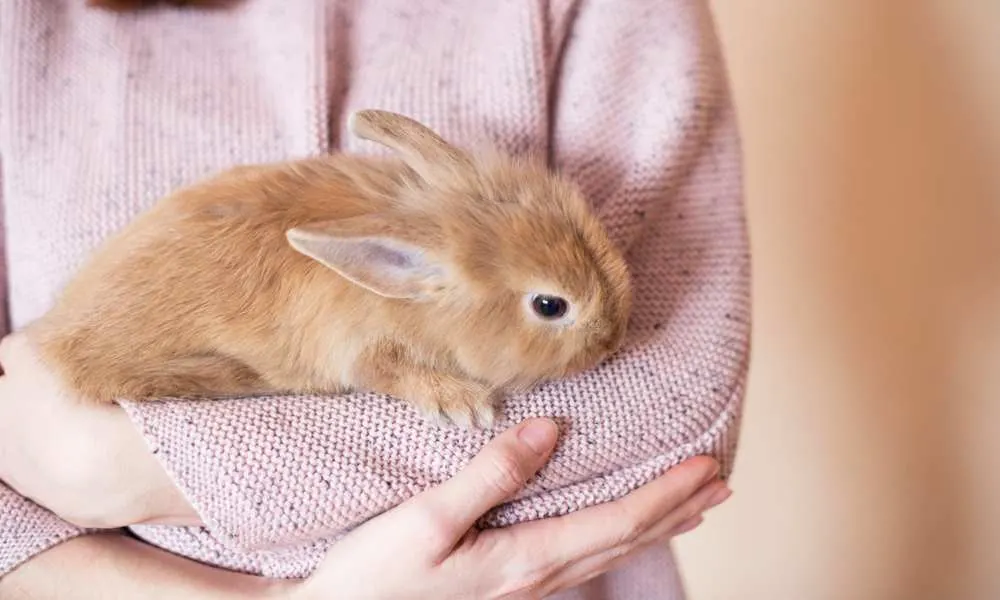
Health Risks
As we mentioned multiple times by now: there are practically no health benefits that rice provides to your pet rabbit. However, when we’re talking about the health risks, the list isn’t short. Here are some things that can happen to a rabbit if he overeats rice.
For starters, the high carb content can be hazardous to rabbits. The excess carbs can jam up their lungs, which can lead to breathing issues. This is especially present in younger rabbits; they’re more prone to this risk.
When a rabbit overeats rice, it can also suffer from acidity. Acidity can lead to intestinal ulcers, which lead to loads of other problems. Some of the symptoms of a rabbit being overfed with rice include:
- Decreased appetite
- Dizziness
- Lethargy
- Vomiting
- Diarrhea
- Stomach bloating
- Constipation
Some of these symptoms are passable and not worth the concern. However, if they last for more than 48 hours, you should contact your vet. Any change of behavior in your rabbit should be tracked.
Rabbits are sensitive animals, and they can quickly get sick. Diarrhea, vomiting, and constipation are severe red flags, and if not treated on time – they can be fatal. If you notice those kinds of behavior in your pet, don’t wait – call your veterinarian immediately.
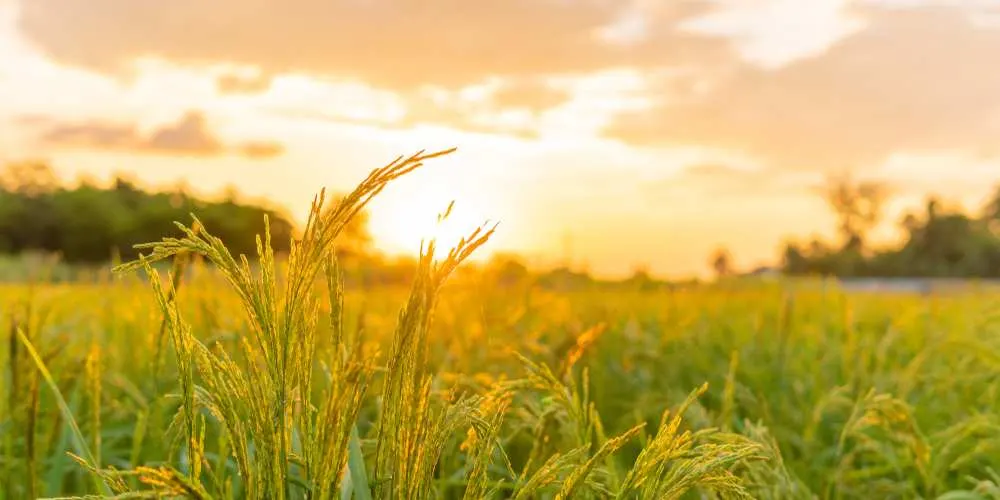
Final Words
By now, you’re probably overwhelmed with loads of information!
To sum it all up, rice isn’t poisonous to your pet rabbit, but it isn’t healthy. The cooked or puffed rice causes less concern but can still damage your bunny’s gastrointestinal balance.
In the long run – any rice can potentially cause harm to your sensitive rabbit. For a bunny to enjoy a long and healthy life, make sure to provide them with a balanced rabbit diet. Hay or grass must always be available to them, and the treats should mainly consist of fruits and veggies.
We know how bunnies can be cute while chewing on human food. But for their best, skip on the rice and let them chew on some rabbit-friendly food!

